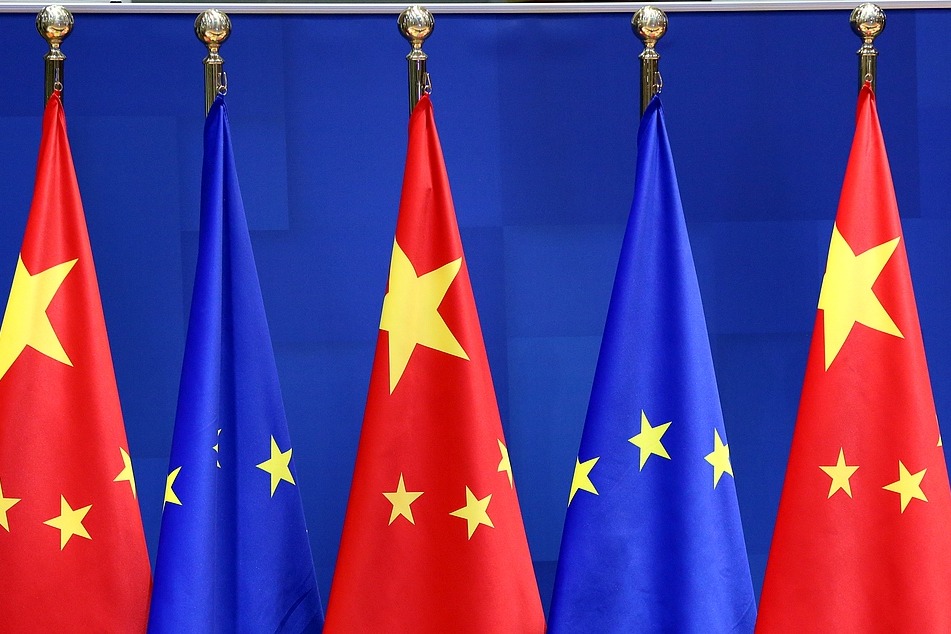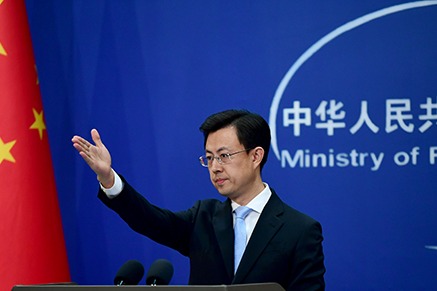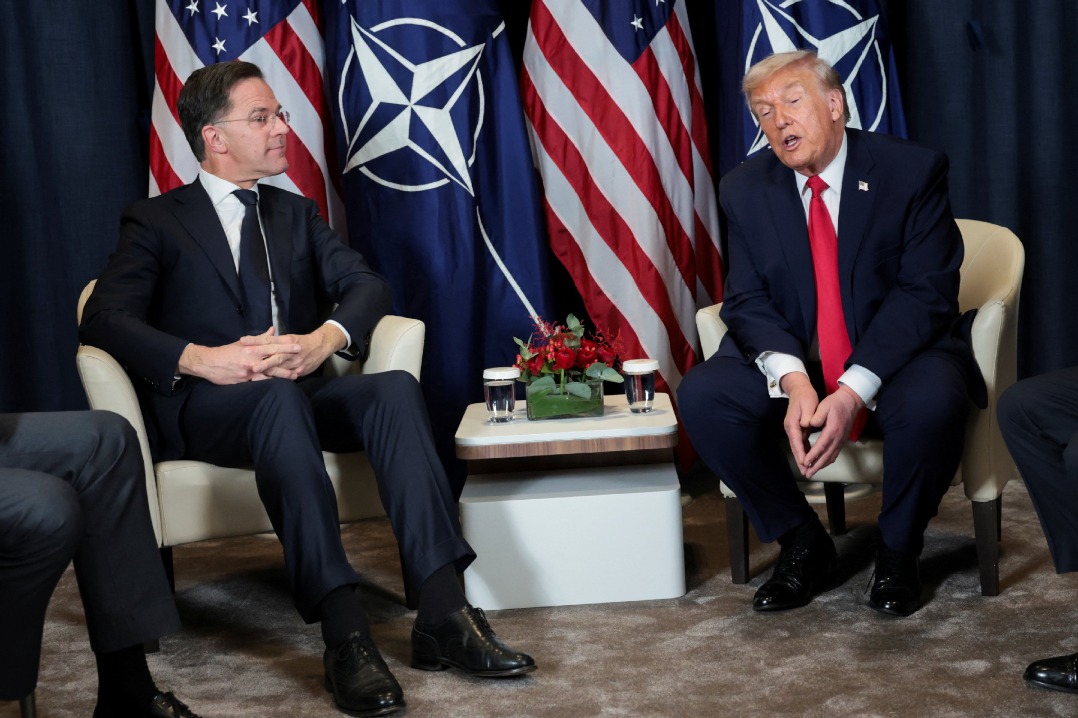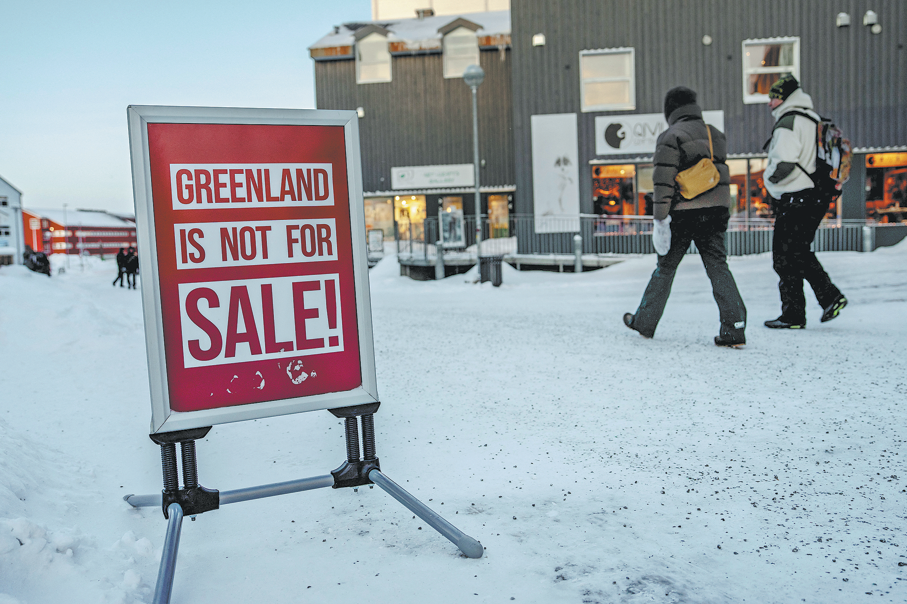Canada tightens border policy as deportation protests spread in US

Canada's new border bill sends a powerful political message, experts say that signal the country is less willing to take in those fleeing America's immigration crackdowns.
Lori Wilkinson, a sociology professor at the University of Manitoba, said the growing unrest in the US highlights how deeply divisive and emotional immigration politics have become.
"If they're angry enough to come out and protest, they must be really angry," she told China Daily.
"It shows that there's a number of people who are greatly unhappy with the policies, as they're being either enacted or the practices that are being enforced," she said.
The Canadian government introduced the Strong Borders Act on June 3, a bill that imposes tighter limits on asylum eligibility and border crossings.
Wilkinson said the move is politically motivated. "It's to say to the United States, Canada's doing our part and increasing border security,"
The legislation would bar asylum claims from individuals who cross irregularly from the United States and file after the 14-day limit established under the Safe Third Country Agreement.
Wilkinson says such rules ignore the realities many migrants face.
"You can introduce the toughest laws on the books — people are still going to come because they have to," she said. "The problems that cause people to migrate are bigger than the laws that prevent them from migrating."
She pointed out that even with tight laws, people will continue trying to enter Canada because of desperation and survival.
She also believes that Canada is unprepared to absorb even a small rise in refugee claims due to existing backlogs and limited infrastructure.
"The system is already overburdened," she said. "The average asylum claimant waits more than two years to have their claim seen in front of a judge."
François Crépeau, former United Nations special rapporteur on the human rights of migrants and a law professor at McGill University, said the protests are "a healthy reaction from a population which is very diverse and has many immigrants."
"These people are very conscious of how they themselves, their parents, their grandparents came to America. And the precarity that is being now imposed upon everyone," he told China Daily.
Crépeau said he was "very pleasantly surprised to see how the unions in California support the movements," adding that this marks a shift from past attitudes when labor organizations often saw undocumented workers as competition.
"Now they are seeing migrants, undocumented or temporary, as future members," he said. "And that to me is also a very healthy sign."
He expressed concern over the deployment of military force against protesters. "Sending national guards and Marines is, in part, a political provocation," he said.
"They're hoping to create a situation of violence," he said, that would allow them "to justify harsh sanctions and the anti-immigration discourse that the Trump administration has had."
About Strong Borders Act, Crépeau said he believes is "preventing people from making very real asylum applications."
He said the Canadian government appears to be using the new legislation to demonstrate political alignment with Washington.
"The Canadian government wants to show the American government their willingness to support them on immigration in order to obtain, I imagine, economic advantages on tariffs," he said.
"But I think it's very unfortunate, as it represents a departure from Canada's historical position and could taint the country's reputation abroad," he said.
Crépeau said the new restrictions are "in part" a response to US President Donald Trump's deportation threats.
"Canada does not want to send the message to Washington that whoever they threaten with deportation will be welcomed in Canada," he said.
Though a major migration surge has not materialized, Crépeau said that changes in US deportation policies, especially for Venezuelans and Haitians, could drive more people north.
"It might happen. We don't know," he said. "The needle hasn't really moved yet."
Looking ahead, Crépeau said he would not be surprised if tougher laws follow. "Everything is possible," he said. "But constitutional challenges will be following very quickly."
Anna Triandafyllidou, Canada Excellence Research Chair in Migration and Integration at Toronto Metropolitan University, said the growing unrest south of the border reveals deep divisions in US politics.
"The president actually standing against the state governor and the mayor of Los Angeles, which is a rupture in the institutions," she told China Daily.
"To have the Marines intervene in protests of US citizens and residents — that's unheard of," she said.
She said that protest is a "positive" sign. "Protesting positively is important to show the administration that they've gone a step too far," she said.
Triandafyllidou expressed concern about Canada's Strong Borders Act. She said the bill "risks violating the obligations of Canada in terms of international law, in terms of asylum, the right to asylum."
"The way to go is strengthen our system, not to undermine the right to asylum or undermine our system of asylum."
She also questioned the logic behind the 14-day restriction. "They try to close this loophole without touching the safe third country agreement, but that's debatable in my view," she said.
On whether the US policy shift could lead to more people moving to Canada, she said it would depend on the group.
She said Highly skilled individuals may look north. "These people, I can see certainly having an eye on Canadian opportunities."
But she was skeptical of a large influx. "I personally don't see that there will be a massive flow," she said. "People with few skills will not have the human and social capital to move to Canada."
Triandafyllidou urged Canadian policymakers to look at specific cohorts. "Put more refugee board officers to deal with the backlog," she said. "The way to go is not to undermine the right to asylum."
gaoyang@chinadailyusa.com
































